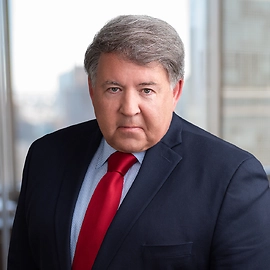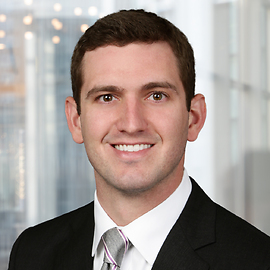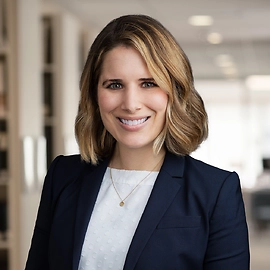On May 17, 2021, the U.S. Department of Justice (“DOJ”) announced the establishment of a COVID-19 Fraud Enforcement Task Force (“Task Force”) to ramp up enforcement efforts against COVID-19-related fraud.[1]
Organized and led by Deputy Attorney General Lisa Monaco, the Task Force convened its first meeting on May 28 and aims to “marshal the resources of the [DOJ] in partnership with agencies across government to enhance enforcement efforts against COVID-19 related fraud.”[2] The Task Force will involve coordination among several DOJ components, including the Criminal and Civil Divisions, the Executive Office for United States Attorneys, and the Federal Bureau of Investigation. “Key interagency partners” have also been invited to join the Task Force, including the Department of Labor, the Department of the Treasury, the Department of Homeland Security, the Social Security Administration, the Department of Veterans Affairs, the Food and Drug Administration’s Office of Criminal Investigations, the U.S. Postal Inspection Service, the Small Business Administration, the Special Inspector General for Pandemic Relief, and Pandemic Response Accountability Committee, among others.
In a DOJ memorandum accompanying the announcement, Attorney General Merrick Garland identified three key goals of the Task Force: “(1) to identify cross-governmental resources, investigative techniques, and information for uncovering fraud schemes and the actors who perpetrate them; (2) to harness what [DOJ has] learned about COVID-19 related and other types of fraud from past efforts; and (3) to deter, detect, and disrupt future fraud wherever it occurs.”[3] The memorandum also notes how the Task Force will enhance DOJ’s “public awareness campaign” focusing on educating “individuals and businesses about the threat of COVID-19 related fraud” and raising awareness on “how whistleblowers can report corporate fraud.”[4]
According to DOJ, the need to combat widespread fraud relating to COVID-19 relief programs drove the establishment of the Task Force (our recent coverage of DOJ’s COVID-19-related enforcement activity can be found here and here). Examples described in Attorney General Garland’s memorandum include selling counterfeit vaccines and personal protective equipment, inflating payrolls to obtain larger loans from the U.S. government, and fraudulently misrepresenting the products or services being sold to the U.S. government, among other things.[5] Indeed, during its first meeting last week, the Task Force’s discussion of “priority goals” included “increased efforts to combat fraud related to COVID-19 relief programs like the Paycheck Protection Program (PPP), the Economic Injury Disaster Loan (EIDL) program, as well as unemployment insurance benefits.”[6] The Task Force’s initial meeting also focused on increasing enforcement efforts to combat COVID-19-related health care fraud, including discussion of DOJ’s pursuit of criminal charges against 14 defendants for alleged participation in fraudulent schemes across six states, which DOJ announced last week.[7]
The White House has also expressed support for the Task Force. On May 17, President Biden released a statement welcoming the establishment of the Task Force, highlighting the importance of “fastidious oversight” over the American Rescue Plan and other pandemic relief measures, and explaining how, through the Task Force, DOJ “will work with other agencies to investigate and prosecute domestic and international criminals intent on exploiting relief programs for personal and financial gain – and recover stolen funds.”[8]
A primary tool in DOJ’s health care cases, the Task Force will likely leverage information from multiple federal agencies to investigate COVID-19-related fraud through enhanced data analytics. With improved interagency coordination, and the Task Force marshaling the investigative efforts, we expect a continued uptick in criminal and civil enforcement activity in the coming months. As we previously covered in connection with DOJ’s first reported False Claims Act (“FCA”) settlement to resolve allegations of CARES Act fraud, DOJ has signaled its early intent to use the FCA as a tool to address COVID-19-related fraud. Individuals and businesses that have received relief funds should therefore expect enhanced scrutiny from government agencies and be prepared to demonstrate that relief funds were obtained and disbursed in accordance with the terms and conditions of the relevant relief program.
[1] Press Release, U.S. Department of Justice, Attorney General Announces Task Force to Combat COVID-19 Fraud (May 17, 2021), available at https://www.justice.gov/opa/pr/attorney-general-announces-task-force-combat-covid-19-fraud.
[2] Id.; Press Release, U.S. Department of Justice, Deputy Attorney General Convenes Inaugural Meeting of the COVID-19 Fraud Enforcement Task Force (May 28, 2021), available at https://www.justice.gov/opa/pr/deputy-attorney-general-convenes-inaugural-meeting-covid-19-fraud-enforcement-task-force.
[3] Memorandum for the Deputy Attorney General, Heads of Department Litigating Components, United States Attorneys, Executive Office for United States Attorneys, Federal Bureau of Investigation, Office of the Inspector General, Organized Crime Drug Enforcement Task Force, and Interpol Washington from the Attorney General, at 2 (May 17, 2021), available at https://www.justice.gov/opa/press-release/file/1394721/download.
[4] Id. at 3.
[5] Id. at 1.
[6] See supra note 2.
[7] Press Release, U.S. Department of Justice, DOJ Announces Coordinated Law Enforcement Action to Combat Health Care Fraud Related to COVID-19 (May 26, 2021), available at https://www.justice.gov/opa/pr/doj-announces-coordinated-law-enforcement-action-combat-health-care-fraud-related-covid-19.
[8] Statement of President Joe Biden on American Rescue Plan Oversight (May 17, 2021), available at https://www.whitehouse.gov/briefing-room/statements-releases/2021/05/17/statement-of-president-joe-biden-on-american-rescue-plan-oversight/.
Blog Editors
Authors
- Member of the Firm
- Board of Directors / Member of the Firm
- Member of the Firm
- Member of the Firm



